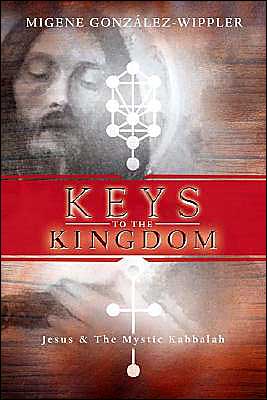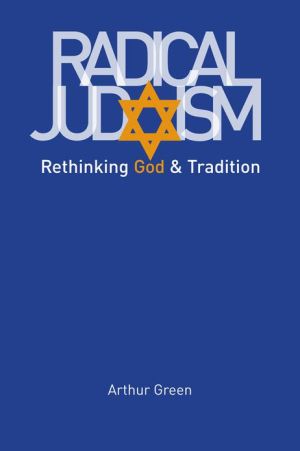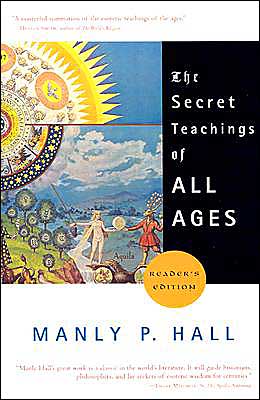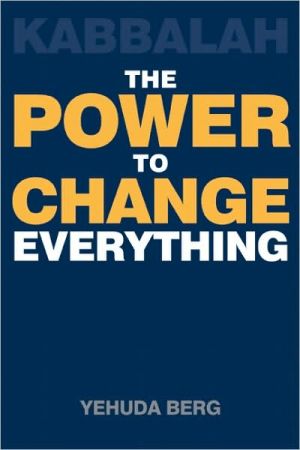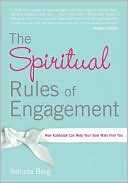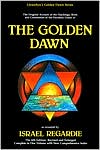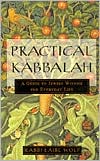Keys to the Kingdom: Jesus and the Mystic Kabbalah
Are Jesus' teachings based on Kabbalism? How do the Ten Commandments tie into the Tree of Life? Is the Lord's Prayer a Kabbalist invocation? Migene González-Wippler reveals secrets of the Bible and the life of Jesus in her intriguing introduction to the Christian Kabbalah.\ Emphasizing Christian aspects, Keys to the Kingdom presents an easy-to-read overview of the Kabbalah, describing its major principles and historical elements. Drawing on the gospels and historical records, González-Wippler...
Search in google:
Are Jesus' teachings based on Kabbalism? How do the Ten Commandments tie into the Tree of Life? Is the Lord's Prayer a Kabbalist invocation? Migene González-Wippler reveals secrets of the Bible and the life of Jesus in her intriguing introduction to the Christian Kabbalah. Emphasizing Christian aspects, Keys to the Kingdom presents an easy-to-read overview of the Kabbalah, describing its major principles and historical elements. Drawing on the gospels and historical records, González-Wippler examines Jesus as a man and a teacher, providing convincing evidence-based on historical and traditional Jewish law-that Jesus was a master Kabbalist . . . as well as the Messiah. Publishers Weekly As a cultural anthropologist with a diverse work history-associations ranging from the American Institute of Physics, the American Museum of Natural History and the UN-Gonzalez-Wippler offers a well-rounded look at the Kabbalah. Not for the casual reader, the book combines textual nuance with forensic and physical science, and cultural tradition and practice, while her impressive bibliography includes religious, philosophical and scientific texts. A careful examination of Jesus and his cultural environment leads to a reasoned explanation of the Messianic tradition, followed by a comprehensive depiction of the Tree of Life. Readers need not be astrophysicists to understand her amazingly accessible correlation between religion and science-which, she asserts, "has proven the existence of God." An excruciatingly detailed history of crucifixion leads ultimately to an interesting comparison of various interpretations of the Ten Commandments. Finally, suggestions on meditation and ritual allow for a cursory incorporation of Kabbalistic themes into everyday worship and practice. Gonzalez-Wippler takes a leap in suggesting that "if Jesus was indeed the Messiah, then Christianity holds the keys to the true meaning of the Kabbalah and the purpose of creation. This does not mean that the Kabbalah is not Jewish. What it means is that Christians are Jews." Some readers may not want to swallow all she has to say, but her book is certainly worth a taste. (Nov.) Copyright 2004 Reed Business Information.
\ Publishers WeeklyAs a cultural anthropologist with a diverse work history-associations ranging from the American Institute of Physics, the American Museum of Natural History and the UN-Gonzalez-Wippler offers a well-rounded look at the Kabbalah. Not for the casual reader, the book combines textual nuance with forensic and physical science, and cultural tradition and practice, while her impressive bibliography includes religious, philosophical and scientific texts. A careful examination of Jesus and his cultural environment leads to a reasoned explanation of the Messianic tradition, followed by a comprehensive depiction of the Tree of Life. Readers need not be astrophysicists to understand her amazingly accessible correlation between religion and science-which, she asserts, "has proven the existence of God." An excruciatingly detailed history of crucifixion leads ultimately to an interesting comparison of various interpretations of the Ten Commandments. Finally, suggestions on meditation and ritual allow for a cursory incorporation of Kabbalistic themes into everyday worship and practice. Gonzalez-Wippler takes a leap in suggesting that "if Jesus was indeed the Messiah, then Christianity holds the keys to the true meaning of the Kabbalah and the purpose of creation. This does not mean that the Kabbalah is not Jewish. What it means is that Christians are Jews." Some readers may not want to swallow all she has to say, but her book is certainly worth a taste. (Nov.) Copyright 2004 Reed Business Information.\ \
